June 14, 2018 •
Amendments to Alberta’s Lobbying Law Take Effect
On June 11, several significant amendments to Alberta’s provincial lobbying law took effect when the Lobbyists Amendment Act, 2018, came into force by Royal Assent. The most substantial change in the existing Lobbyist Act is the reduction of an organizational […]
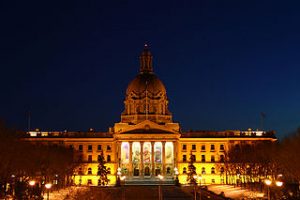 On June 11, several significant amendments to Alberta’s provincial lobbying law took effect when the Lobbyists Amendment Act, 2018, came into force by Royal Assent. The most substantial change in the existing Lobbyist Act is the reduction of an organizational lobbyist’s time threshold from 100 hours annually to 50 hours annually.
On June 11, several significant amendments to Alberta’s provincial lobbying law took effect when the Lobbyists Amendment Act, 2018, came into force by Royal Assent. The most substantial change in the existing Lobbyist Act is the reduction of an organizational lobbyist’s time threshold from 100 hours annually to 50 hours annually.
For the purposes of determining whether lobbying amounts to 50 hours annually, time spent lobbying includes time spent preparing for communication and communicating with a public office holder. Contingency lobbying is now prohibited under the Act.
Another change to the law amends the definition of lobbying to statutorily include grassroots communication as a form of regulated lobbying requiring registration. Grassroots communication does not include communication between an organization and its members, officers or employees or between a person or partnership and its shareholders, partners, officers or employees.
A lobbyist gift ban has been enacted and reads as follows, “Lobbyists are prohibited from giving or promising any gift, favor or other benefit to the public office holder being, or intended to be, lobbied that the public office holder is prohibited from accepting or that, if given, would place the public office holder in a conflict of interest.”
An additional exemption to the requirement of registering as a lobbyist was added for individuals who are recognized as elders by their aboriginal community.
April 4, 2018 •
Ask The Experts – Covering Expenditures for Site Visits
Q. As a company, we would like to organize site visits for agency officials, so they can better understand our company and industry. Can we cover expenditures for these visits? A. State and local gift restrictions will apply to company expenditures […]
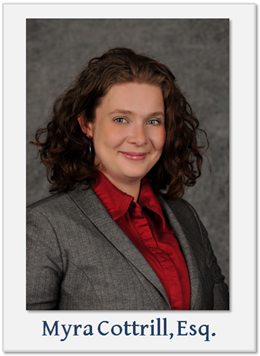 Q. As a company, we would like to organize site visits for agency officials, so they can better understand our company and industry. Can we cover expenditures for these visits?
Q. As a company, we would like to organize site visits for agency officials, so they can better understand our company and industry. Can we cover expenditures for these visits?
A. State and local gift restrictions will apply to company expenditures associated with a site visit by a government official or employee, especially if your company is a lobbyist employer or state contractor. Food, beverage, entertainment, travel, lodging, or other promotional/welcome gifts could be restricted or banned. However, many jurisdictions have specific gift exceptions allowing expenditures in conjunction with site visits. Each jurisdiction has its own requirements for gift law compliance…
For more information, be sure to check out the Gift Law and Reports Required sections of the Lobbying Compliance Laws online publication for any jurisdiction. Please feel free to contact us if you have any questions.
March 13, 2018 •
Pennsylvania Governor Introduces Ethics Reform Plan
Pennsylvania Governor Tom Wolf announced his Citizen First ethics reform plan this week. Gov. Wolf, who took office in 2015, has been a proponent of broad ethics and government reform. The Citizens First ethics reform plan includes a gift ban […]
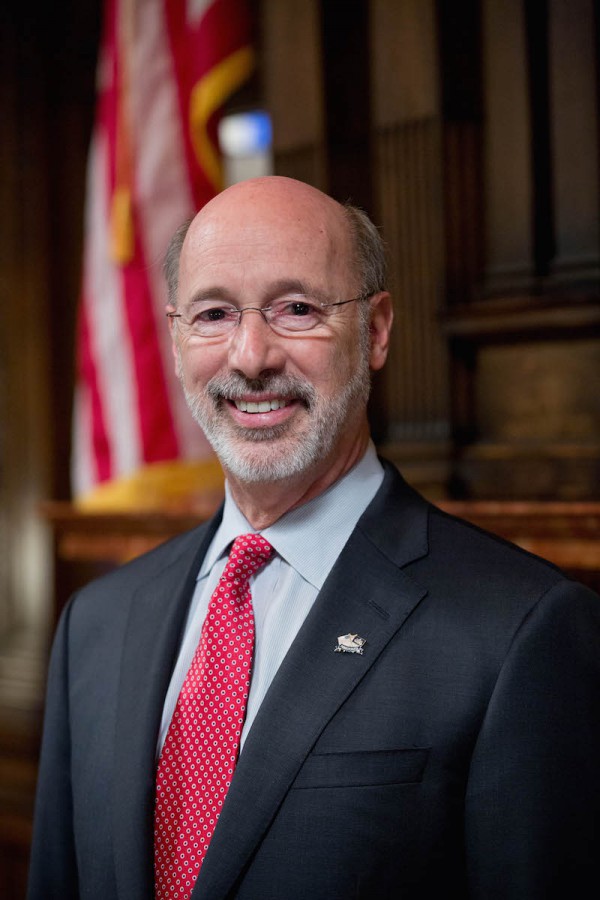 Pennsylvania Governor Tom Wolf announced his Citizen First ethics reform plan this week. Gov. Wolf, who took office in 2015, has been a proponent of broad ethics and government reform.
Pennsylvania Governor Tom Wolf announced his Citizen First ethics reform plan this week. Gov. Wolf, who took office in 2015, has been a proponent of broad ethics and government reform.
The Citizens First ethics reform plan includes a gift ban for all public officials. Gov. Wolf already banned members of his administration from accepting gifts but is seeking a broader permanent ban to stop politicians from accepting unlimited gifts.
Along with a gift ban, the plan includes campaign finance reform creating contribution limits, restriction on political action committees, and heightened reporting requirements.
The proposed campaign finance reform would also include pay-to-play provisions requiring the disclosure of campaign contributions made by entities seeking contracts with the state.
January 19, 2018 •
Missouri House Passes Lobbyist Gift Reforms
The Missouri House of Representatives overwhelmingly voted to pass restrictions on lobbyist gifts on Wednesday, January 17, 2018. The proposal would ban lobbyist expenditures on individuals, with the exception of customary gifts such as flowers and other plants, and events […]
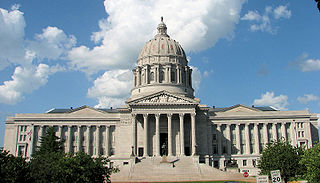 The Missouri House of Representatives overwhelmingly voted to pass restrictions on lobbyist gifts on Wednesday, January 17, 2018.
The Missouri House of Representatives overwhelmingly voted to pass restrictions on lobbyist gifts on Wednesday, January 17, 2018.
The proposal would ban lobbyist expenditures on individuals, with the exception of customary gifts such as flowers and other plants, and events where all members of the Legislature are invited.
House Bill 1303 has been referred to the Senate Rules, Joint Rules, Resolutions, and Ethics Committee.
January 8, 2018 •
Arizona Corporation Commission Proposes Lobbyist Gift and Food Ban for Commissioners
The Arizona Corporation Commission released a code of ethics draft that would ban lobbyists from buying gifts or food for commissioners, as well as require lobbyist registration with the state. The draft can be amended before the Corporation Commission adopts […]
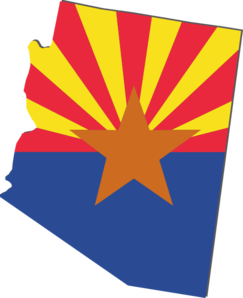 The Arizona Corporation Commission released a code of ethics draft that would ban lobbyists from buying gifts or food for commissioners, as well as require lobbyist registration with the state.
The Arizona Corporation Commission released a code of ethics draft that would ban lobbyists from buying gifts or food for commissioners, as well as require lobbyist registration with the state.
The draft can be amended before the Corporation Commission adopts the code of ethics, which is expected by March.
Effective July 30, 2017, Arkansas constitutional officers are prohibited from soliciting or accepting loans from lobbyists. Senate Bill 7, now known as Act 1108, amends the definition of gift to include any advance or loan. The bill excludes an advance […]
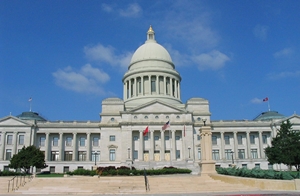 Effective July 30, 2017, Arkansas constitutional officers are prohibited from soliciting or accepting loans from lobbyists.
Effective July 30, 2017, Arkansas constitutional officers are prohibited from soliciting or accepting loans from lobbyists.
Senate Bill 7, now known as Act 1108, amends the definition of gift to include any advance or loan. The bill excludes an advance or loan made in the ordinary course of business by a financial institution or business regularly extending credit.
Bills signed during the regular session are effective 90 days after the final, official day of session, unless otherwise specified. The 91st General Assembly is set to adjourn sine die on May 1, 2017.
April 27, 2017 •
Virginia Governor Approves Changes to Gift Rules
Gov. Terry McAuliffe approved changes to Virginia’s gift rules this week, marking the fourth consecutive year lawmakers have adjusted ethics provisions. Among other changes, House Bill 1854, and identical Senate Bill 1312, requires lobbyists to send legislators and executive officials […]
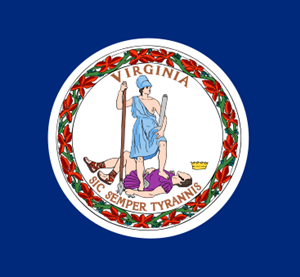 Gov. Terry McAuliffe approved changes to Virginia’s gift rules this week, marking the fourth consecutive year lawmakers have adjusted ethics provisions. Among other changes, House Bill 1854, and identical Senate Bill 1312, requires lobbyists to send legislators and executive officials a summary of gifts provided from January 1 through adjournment sine die of the regular session of the General Assembly. The summary must be provided within three weeks of adjournment and does not include the reconvened session.
Gov. Terry McAuliffe approved changes to Virginia’s gift rules this week, marking the fourth consecutive year lawmakers have adjusted ethics provisions. Among other changes, House Bill 1854, and identical Senate Bill 1312, requires lobbyists to send legislators and executive officials a summary of gifts provided from January 1 through adjournment sine die of the regular session of the General Assembly. The summary must be provided within three weeks of adjournment and does not include the reconvened session.
The bill also eliminates the “common interest” exception to the $100 gift limit on lobbyists for widely attended events. This exception was used to justify luxury suite tickets to football games. An exception is added, however, for attendance at a reception where hors d’oeuvres and beverages are provided and can be consumed while standing or walking.
These changes are effective July 1, 2017, except the gift notification requirement is effective immediately.
March 7, 2017 •
Two Ethics Bills Signed by Arkansas Governor
Gov. Asa Hutchinson signed House Bill 1401 and Senate Bill 169 into law. Both bills provide exceptions to the definition of gift. For example, House Bill 1401 excludes nonalcoholic beverages provided to attendees at a meeting of a civic, social, […]
 Gov. Asa Hutchinson signed House Bill 1401 and Senate Bill 169 into law. Both bills provide exceptions to the definition of gift.
Gov. Asa Hutchinson signed House Bill 1401 and Senate Bill 169 into law. Both bills provide exceptions to the definition of gift.
For example, House Bill 1401 excludes nonalcoholic beverages provided to attendees at a meeting of a civic, social, or cultural organization or group from the definition of gift, as well as food and nonalcoholic beverages provided to participants at a bona fide panel, seminar, or speaking engagement at which the audience is a civic, social, or cultural organization or group.
Senate Bill 169 provides the use of one or more rooms or facilities owned, operated, or otherwise utilized by a state agency or political subdivision of the state for the purpose of conducting a meeting of a specific governmental body is not a gift.
House Bill 1401 is effective immediately and Senate Bill 169 will become effective 90 days after the Legislature adjourns sine die, or June 9, 2017.
February 3, 2017 •
Nebraska Senator Renews Effort to Ban Lobbyist-Provided Meals in the Capitol
Reviving his concern from last year’s legislative session, Sen. Ernie Chambers introduced a bill to prevent lawmakers from accepting meals from lobbyists in the Capitol. Legislative Bill 445 is similar to a proposal Sen. Chambers sponsored last year, but it […]
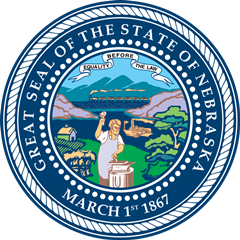 Reviving his concern from last year’s legislative session, Sen. Ernie Chambers introduced a bill to prevent lawmakers from accepting meals from lobbyists in the Capitol. Legislative Bill 445 is similar to a proposal Sen. Chambers sponsored last year, but it never made it to a vote. The bill specifically aims to prohibit meals served to lawmakers at the end of the session, when last minute decisions are made.
Reviving his concern from last year’s legislative session, Sen. Ernie Chambers introduced a bill to prevent lawmakers from accepting meals from lobbyists in the Capitol. Legislative Bill 445 is similar to a proposal Sen. Chambers sponsored last year, but it never made it to a vote. The bill specifically aims to prohibit meals served to lawmakers at the end of the session, when last minute decisions are made.
Lobbyists typically pool their money and provide large, buffet-style meals for legislators as they work into the night. Sen. Chambers said he is concerned the meals create the appearance improper influence.
The lawsuit filed in state court to block the government ethics overhaul recently approved by voters will have its first hearing December 8th. The lawsuit challenges the constitutionality of Initiated Measure 22 which became effective last week restricting campaign contributions […]
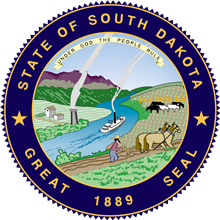 The lawsuit filed in state court to block the government ethics overhaul recently approved by voters will have its first hearing December 8th. The lawsuit challenges the constitutionality of Initiated Measure 22 which became effective last week restricting campaign contributions and gifts from lobbyists.
The lawsuit filed in state court to block the government ethics overhaul recently approved by voters will have its first hearing December 8th. The lawsuit challenges the constitutionality of Initiated Measure 22 which became effective last week restricting campaign contributions and gifts from lobbyists.
The group of 24 Republican lawmakers bringing the suit are seeking an injunction to block the law, and South Dakotans for Integrity, the ballot question committee that supported Initiated Measure 22, has filed a motion to intervene.
October 21, 2016 •
Chicago Board of Ethics Makes New Rule for Acceptance of Cubs Tickets
Last week, the executive director of the Chicago Board of Ethics told the mayor and aldermen they could buy Cubs playoff tickets at face value provided they went to the game themselves and were publicly acknowledged by having their names […]
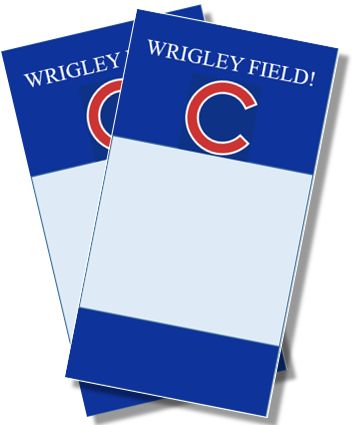 Last week, the executive director of the Chicago Board of Ethics told the mayor and aldermen they could buy Cubs playoff tickets at face value provided they went to the game themselves and were publicly acknowledged by having their names announced or displayed.
Last week, the executive director of the Chicago Board of Ethics told the mayor and aldermen they could buy Cubs playoff tickets at face value provided they went to the game themselves and were publicly acknowledged by having their names announced or displayed.
A new ethics interpretation, however, will take effect before the Cubs face the Dodgers in game six of the seven-game series. In a revised memorandum, the Board of Ethics said the elected officials may accept the tickets at face value only if they perform a ceremonial duty or action and there is a clear and direct connection between the official’s attendance and performance of such ceremonial duty or action.
The Board of Aldermen passed two bills on October 7 to establish campaign contribution limits and clarify gift reporting. Board Bill 53 limits campaign contributions in city elections to $10,000 per election cycle. Violations could result in 90 days of […]
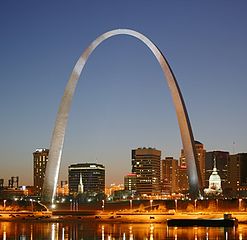 The Board of Aldermen passed two bills on October 7 to establish campaign contribution limits and clarify gift reporting.
The Board of Aldermen passed two bills on October 7 to establish campaign contribution limits and clarify gift reporting.
Board Bill 53 limits campaign contributions in city elections to $10,000 per election cycle. Violations could result in 90 days of jail and a $500 fine. If signed by Mayor Francis Slay, the bill would be effective April 6, 2017, just after the spring mayoral election.
Board Bill 126 requires elected officials to report gifts and travel expenses valued at $375 or more when given by interested persons. Violating the reporting requirement would result in docked pay. Currently, the code requires reporting of gifts exceeding $250, but it is not clear whether public officials are reporting gifts as required.
Photo of the Gateway Arch in St. Louis by Daniel Schwen in Wikimedia Commons.
August 2, 2016 •
San Francisco, CA Voters to Decide on Lobbyist Restrictions
The San Francisco Ethics Commission voted unanimously to submit an initiative ordinance to the November 2016 ballot. The measure would restrict lobbyist gifts, campaign contributions, and bundled contributions. If passed by voters, the ordinance will become effective January 1, 2018.
 The San Francisco Ethics Commission voted unanimously to submit an initiative ordinance to the November 2016 ballot.
The San Francisco Ethics Commission voted unanimously to submit an initiative ordinance to the November 2016 ballot.
The measure would restrict lobbyist gifts, campaign contributions, and bundled contributions.
If passed by voters, the ordinance will become effective January 1, 2018.
July 21, 2016 •
New York Bill Proposes Giving Limits
Sen. Todd Kaminsky and Representative Charles Lavine have introduced a new bill which would amend the penal law relating to unlawful giving. Senate Bill 8169 would close a loophole allowing public officials to receive or give gifts or benefits in […]
 Sen. Todd Kaminsky and Representative Charles Lavine have introduced a new bill which would amend the penal law relating to unlawful giving. Senate Bill 8169 would close a loophole allowing public officials to receive or give gifts or benefits in excess of $3,000 simply because of their official position.
Sen. Todd Kaminsky and Representative Charles Lavine have introduced a new bill which would amend the penal law relating to unlawful giving. Senate Bill 8169 would close a loophole allowing public officials to receive or give gifts or benefits in excess of $3,000 simply because of their official position.
The bill does not affect campaign contributions, which are already monitored by the Board of Elections.
The legislation is a response to the recent Supreme Court decision in McDonnell v. The United States, which permits officials to receive lavish gifts so long as the gifts are not exchanged for promises to perform governmental acts.
State and Federal Communications, Inc. provides research and consulting services for government relations professionals on lobbying laws, procurement lobbying laws, political contribution laws in the United States and Canada. Learn more by visiting stateandfed.com.


